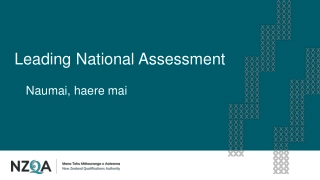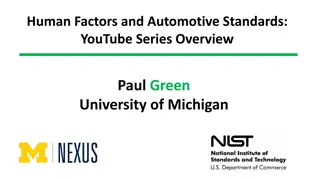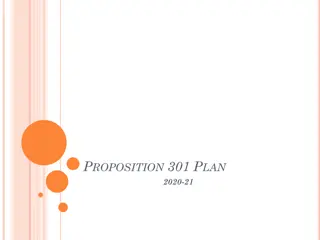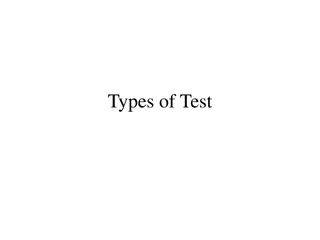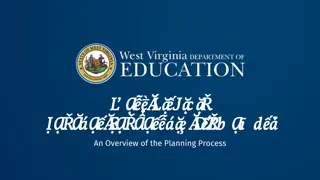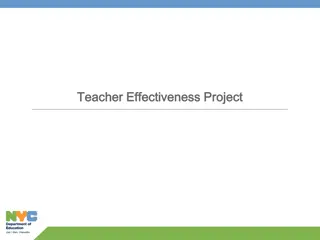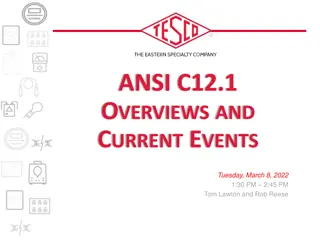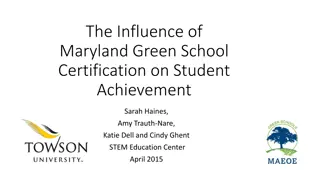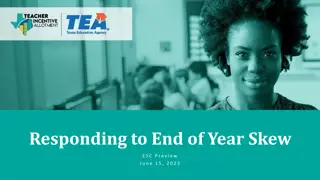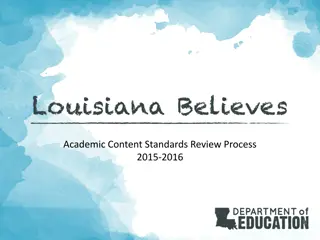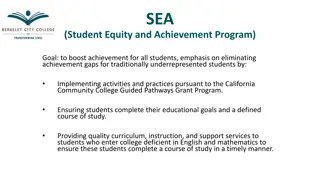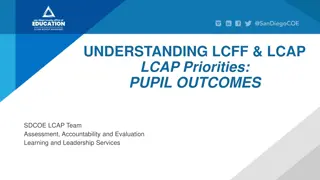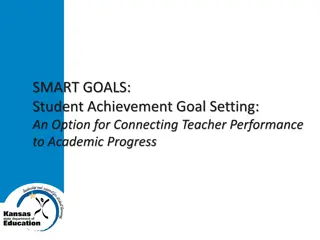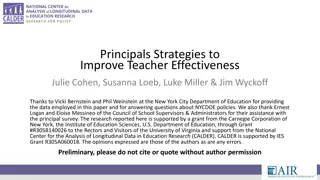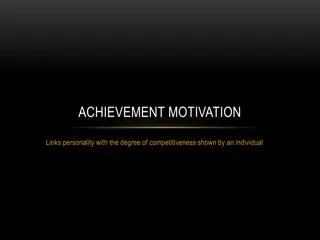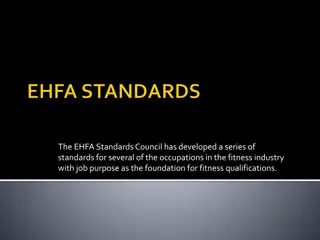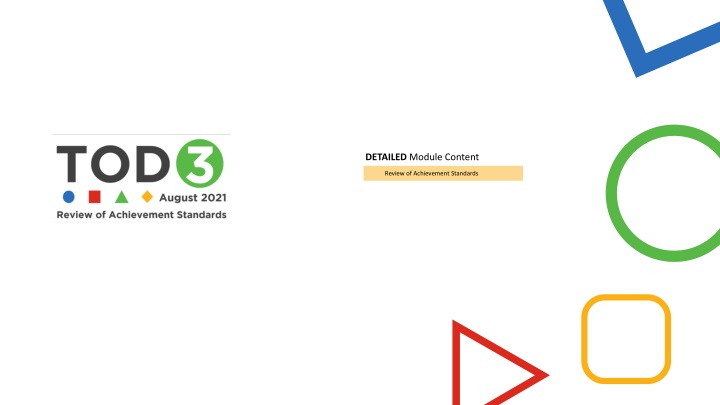
Review of NCEA Achievement Standards Process
Explore how the NCEA system is evolving to prioritize learning over assessment, promote inclusivity, and provide diverse pathways for student success. Subject Expert Groups are reshaping curriculum and assessment to enhance educational outcomes.
Download Presentation

Please find below an Image/Link to download the presentation.
The content on the website is provided AS IS for your information and personal use only. It may not be sold, licensed, or shared on other websites without obtaining consent from the author. If you encounter any issues during the download, it is possible that the publisher has removed the file from their server.
You are allowed to download the files provided on this website for personal or commercial use, subject to the condition that they are used lawfully. All files are the property of their respective owners.
The content on the website is provided AS IS for your information and personal use only. It may not be sold, licensed, or shared on other websites without obtaining consent from the author.
E N D
Presentation Transcript
DETAILED Module Content Review of Achievement Standards
The System Shifts Status Quo System Shift Desired Future Well being Shift the balance between learning and assessment more towards learning so that curriculum drives assessment and decrease the burden of assessment on providers Fewer, more meaningful assessments reduce volume and open up space for curriculum-first learning. Excessive NCEA workload for students and those who teach them constant assessment and excessive credit counts. Inclusion and Equity Shift classroom and system practice towards inclusivity of students abilities, cultures and identities, Reflecting students identities through their NCEA is accessible for all teachers and konga, with support and resourcing to ground learning in m taurangaM ori available across all settings. NCEA often excludes students identities, cultures and aspirations from the assessment process; M ori are insufficiently supported to achieve success as M ori Coherence Shift towards a focus on ensuring every young person has the range of capabilities, knowledge and skills needed to thrive, reflected in authentic assessment. NCEA drives a focus on the most important learning in each discipline. NCEA often breaks up learning making it hard to identify and connect up the most important learning. Pathways Shift towards students being empowered to take good pathways supported by schools, wh nau and the community, with relevant and personalised support for the pathways chosen Diverse, quality pathways are available in every school and well supported; harmful practices like undervaluing vocational learning or streaming are removed. Some young people particularly M ori and Pacific students, disabled students and those on vocational paths are denied access to empowering pathways to succeed in life. Credibility Shifting the balance towards clear, simple decisions and information, so that students, wh nau and the community understand and have confidence in the skills, knowledge and capabilities including in literacy and numeracy that an NCEA signifies. Everyone understands NCEA, and has confidence what it signifies about a student s education and readiness to success in work, study and life. It s hard to understand what a young person with an NCEA is capable of and not all New Zealanders believe that NCEA graduates are ready for the world.
NCEA Change Programme Timeline Link to NCEA Change Programme Timeline
Subject Expert Groups The Review of Achievement Standards is a comprehensive sector-led co-design process Subject expert groups (SEGs) have been formed for each NCEA subject. The SEGs are comprised of significant expertise and experience SEGs will develop the RAS assessment package for each subject SEG work involves deep curriculum discussion at various stages throughout the year Feedback points have been looped into the process In school user testing will also provide important feedback opportunities
The Plan Phase One Phase Two Phase Three Solely concerned with the teaching and learning of the subject. In phase 1 the Subject Expert Groups develop a Learning Matrix which includes the subject Big Ideas and the Significant Learning which is considered too important to miss. The SEGs also produce an Assessment Matrix which represents a snapshot of their thinking regarding assessment for their subject at level 1. Concerns the assessment which samples the significant learning from phase one. The SEGs begin by refining the Achievement Standards then decide upon the modes and forms of assessment. Provisional assessment specifications are written for the externals. Assessment activities are written for the internal achievement standards along with assessment schedules and conditions of assessment. The piloting of all the assessment materials developed in phase 1 and phase 2. The trial schools will produce Teaching and Learning Programs as well as gather student exemplars for national use.
RAS Process Video Link to RAS Process Video
Kaupapa o te R Link to Live Question & Answer Session: https://connect.vln.school.nz/todqna1/?proto=true
All of the Resources will remain accessible through the LMS and NCEA.education.govt.nz if you want to return to them.



